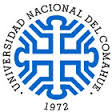- RDI Principal
- →
- Facultad de Ingeniería
- →
- Trabajos Finales
- →
- Ver ítem
JavaScript is disabled for your browser. Some features of this site may not work without it.
Estudio, desarrollo y comparación de tecnologías para la detección temprana de falla en Equipos Rotantes
Troffe, Santiago Javier
Resumen:
Mostrar el registro completo del ítem
Métricas de Uso:
Ficheros en el ítem
Este ítem aparece en la(s) siguiente(s) colección(ones)
 Excepto si se señala otra cosa, la licencia del ítem se describe como Atribución-NoComercial-CompartirIgual 2.5 Argentina
Excepto si se señala otra cosa, la licencia del ítem se describe como Atribución-NoComercial-CompartirIgual 2.5 Argentina
Ítems relacionados
Mostrando ítems relacionados por Título, autor o materia.
-
Zuñiga, Marcos Julián (Universidad Nacional del Comahue. Facultad de Ingeniería., )Este trabajo tiene como objetivo la identificación de las principales fallas que afectan y reducen la disponibilidad de los motocompresores de una planta compresora de gas. Las actividades se desarrollaron en el marco del ...
-
Mantilaro, Pedro (Universidad Nacional del Comahue. Facultad de Ingeniería, )El presente trabajo aborda los aspectos relativos a la implementación de un sistema de monitoreo continuo, con un enfoque proactivo, para gestionar eficientemente el mantenimiento de un sistema de bombas verticales. En ...
-
Piñapil, Esteban Javier (Universidad Nacional del Comahue. Facultad de Ingeniería, )El presente trabajo tiene como objetivo presentar al lector un compendio de los ensayos a realizar a un transformador de potencia dentro de un programa de mantenimiento preventivo y predictivo. Debido a la importancia que ...
Buscar en RDI
Listar
Mi cuenta
Estadísticas
Este documento es resultado del financiamiento otorgado por el Estado Nacional, por lo tanto queda sujeto al cumplimiento de la Ley N° 26.899

UNIVERSIDAD NACIONAL DEL COMAHUE | Buenos Aires 1400 | Q8300 - Neuquén Capital | Patagonia Argentina | Tel: +54-299-4490300

